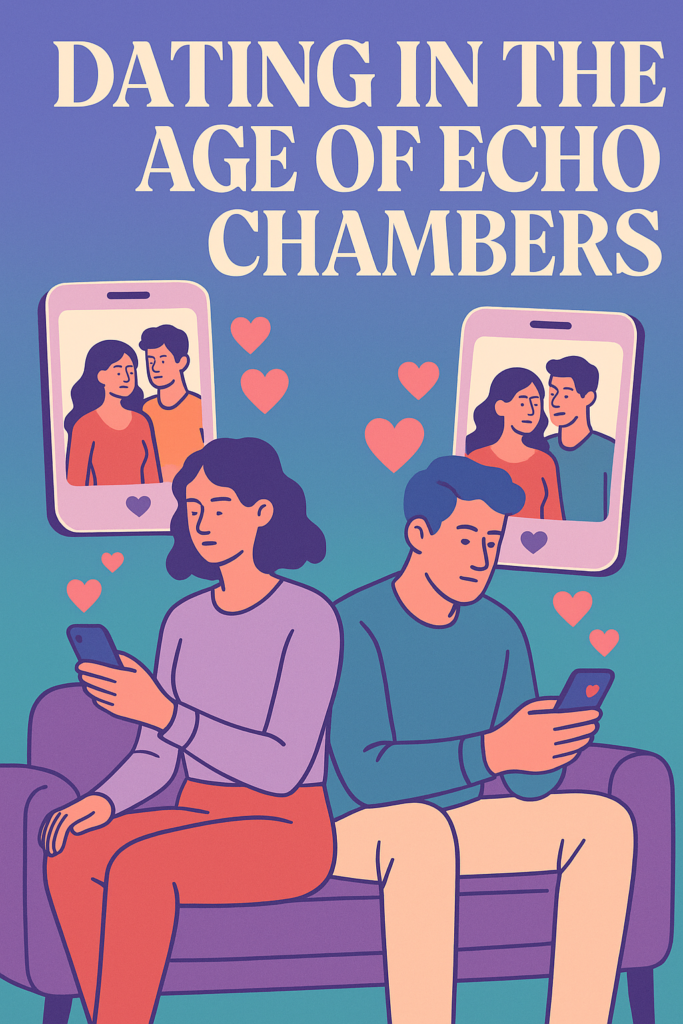
TL;DR: It’s exhausting to miss the influence of social media on courting lives and preferences, courting prospects, and even psychological well being. Algorithms reinforce present biases, wishes, and aesthetic beliefs.
Social media reinforce echo chambers in courting preferences and perceptions of success by continuously feeding customers content material that aligns with their present biases, wishes, and aesthetic beliefs. Algorithms on platforms like Instagram and TikTok promote sure seems, existence, and couple dynamics, usually favoring youth, attractiveness, and materials standing, solidifying what individuals discover fascinating in a companion.
Somebody who engages with movies of conventionally enticing {couples} or luxurious date nights will more and more see extra of the identical, narrowing their view of what a satisfying relationship seems like. This repetition discourages openness to numerous relationship paths or companion sorts, making it more durable for people to beat their biases, which give rise to unrealistic expectations most of the time, and enhance their courting prospects.
The opposed influence of social media on courting lives, physique picture, and psychological well being
It’s exhausting to miss social media’s impact on relationships; to say they play a major position is the understatement of the century. In accordance with a current survey, 40% of girls and 28% of males report that relationship posts on social media influence their courting lives negatively. Nearly half (45%) of web customers aged 18-29 in severe relationships share that social media have affected their partnership.
An analogous impact on physique picture has been noticed. Over 50% of social media customers from the US, the UK, France, Australia, and Germany report experiencing weight stigma. Nearly 33% of well being membership customers report vital physique dysmorphia signs, and 70% of those 33% even have an consuming dysfunction.
As of 2025, it’s estimated that 210 million people wrestle with social media dependancy (4-5%). People spend slightly below 2.30 hours on social media on common, and round 30% self-identify as addicts, a determine that will increase to 78% for ages 18-24. 40% of customers report feeling anxious after they briefly lose entry to their profiles. Not even Gen X and Boomers are resistant to the dangers: 39% of people aged 55-64 share that they really feel hooked on social media.
Girls face a better threat, with 59% of females and 41% of males reporting that they really feel addicted. So do members of collectivist cultures, the place the prevalence of social media dependancy is 31% in comparison with less than half that (14%) in individualist ones.
How one can be extra sensible in your courting preferences and expectations
It’s completely acceptable to have courting preferences so long as you’re prepared to just accept their penalties. Preferring college-aged girls will considerably restrict the choices obtainable to a person in his late 30s or older, likewise, for a person who will solely date virgins. Girls with a choice for six ft and 6 figure-salaries will discover themselves ready for fairly some time.
Being sensible begins with ensuring you’re able to embrace the courting scene. This won’t be the case for individuals who haven’t taken the time to heal from previous hurts. Analyze failed relationships, together with your position within the challenges and any successes, determine classes discovered, and contemplate altering your expectations or conduct. Take the time to determine what you’re actually in search of and the way you’ll talk it to new love pursuits and potential companions.
Recap
- Social media’s influence on courting lives is multilateral and sometimes opposed
- They will additionally hurt physique picture and psychological well being and result in dependancy
- They feed us the identical content material sorts, reinforcing biases
- Contemplate the implications of unrealistic courting preferences and expectations
